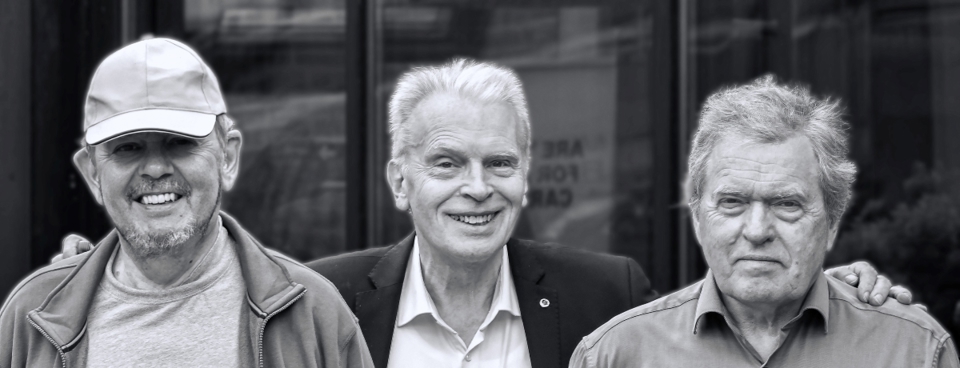September 2024 is 50 years since Aalborg University Center (AUC) saw the light of day. Among the 800 young, hopeful students at the time were Mogens Ove Madsen, Jan Holm Ingemann and Steen Ørndorf. They are currently employed as associate professors at AAU, and just over five years ago they agreed that they would mark the university's anniversary with a book about the university and the PBL pedagogical approach. Their effort culminated in The Goose and the Golden Egg published in September by Aalborg University Press.
"AUC has been a natural part of our lives for 50 years, and AUC will undoubtedly also be a part of us forever. Our backgrounds and motivations back in 1974 were different, but we quickly met and discussed, supported and inspired each other in different ways throughout our studies," says Mogens Ove Madsen.
From the beginning, the three were very interested in the problem-oriented project work and in the ambition that the new institution should be a natural part of life in the world in general and Northern Jutland in particular.
Since then, they have followed and participated in discussions about the ideals of pedagogical approach and AUC's mission, as well as the university's development and change over time. First as students and later as members of the teaching staff.
AAU's pedagogical approach is the focus of The Goose and the Golden Egg. Speaking to AAU Update, Mogens Ove Madsen, Associate Professor and study board chair at AAU Business School, elaborates that the book examines what the thinking behind the study method was. Why was it a success? How was the idea implemented? Where are we today – and what are the perspectives? The book answers these questions by including theoretical suggestions and by inviting other university "life witnesses" through interviews and written contributions to offer suggestions for answers.
PBL paved the way
As a starting point for the book, the three editors' claim that the problem-oriented project work was – so to speak – 'the goose that laid the golden egg'.
"It was the foundation of AUC succeeding at all. Before, during and immediately after the establishment of AUC, it was not obvious to everyone that we should have a university in Northern Jutland. Many considered it unrealistic, or perhaps even inappropriate, that we had the need or capacity for research and education at the highest level," explains Mogens Ove Madsen.
"But the Golden Egg made the impossible possible and the unrealistic realistic by convincing a part of the business community and the political establishment that research and university education could be of immediate benefit and enable young people from non-academically oriented homes to be able to stay in Northern Jutland and manage an education at an academic level," he adds.
The editors find that the role the PBL model plays in the individual degree programmes varies widely. There are still pockets at AAU where project work and problem-oriented work are thriving and developing. However, in the book they do not hide the fact that they believe it is under pressure. Yet, they continue to believe in the model, its strength, and its potential.
"This applies not only to us as editors, but also to the contributors to the book. We hope that the knowledge and ideas compiled in the book will be utilized to further advance the pedagogical approach in Aalborg over the next 50 years," says Mogens Ove Madsen.
"Now is the time for the university's management and board to figure out how to ensure equal conditions for PBL throughout the university," he adds.
Translated by LeeAnn Iovanni, AAU Communication and Public Affairs.




